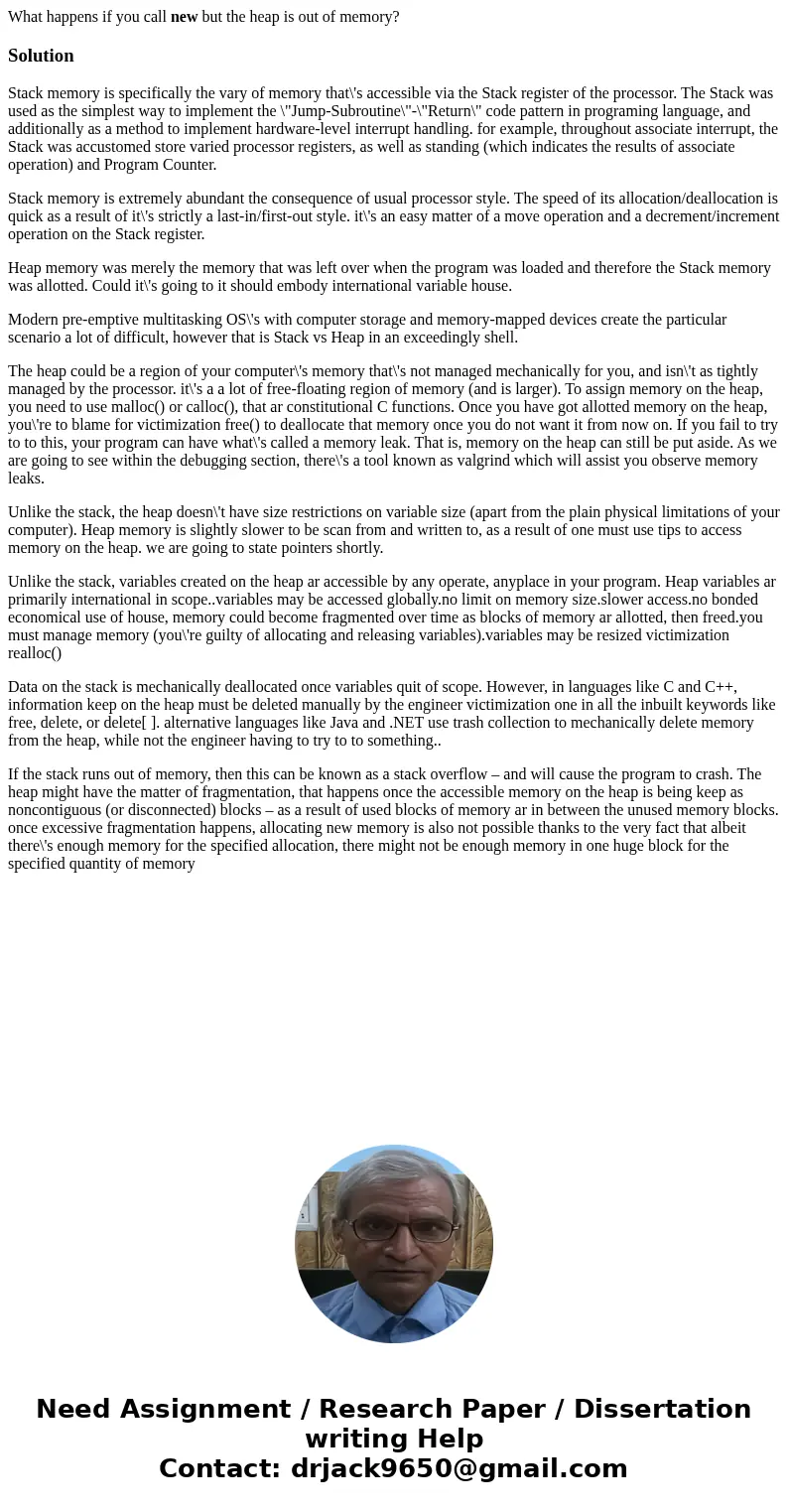What happens if you call new but the heap is out of memorySo
What happens if you call new but the heap is out of memory?
Solution
Stack memory is specifically the vary of memory that\'s accessible via the Stack register of the processor. The Stack was used as the simplest way to implement the \"Jump-Subroutine\"-\"Return\" code pattern in programing language, and additionally as a method to implement hardware-level interrupt handling. for example, throughout associate interrupt, the Stack was accustomed store varied processor registers, as well as standing (which indicates the results of associate operation) and Program Counter.
Stack memory is extremely abundant the consequence of usual processor style. The speed of its allocation/deallocation is quick as a result of it\'s strictly a last-in/first-out style. it\'s an easy matter of a move operation and a decrement/increment operation on the Stack register.
Heap memory was merely the memory that was left over when the program was loaded and therefore the Stack memory was allotted. Could it\'s going to it should embody international variable house.
Modern pre-emptive multitasking OS\'s with computer storage and memory-mapped devices create the particular scenario a lot of difficult, however that is Stack vs Heap in an exceedingly shell.
The heap could be a region of your computer\'s memory that\'s not managed mechanically for you, and isn\'t as tightly managed by the processor. it\'s a a lot of free-floating region of memory (and is larger). To assign memory on the heap, you need to use malloc() or calloc(), that ar constitutional C functions. Once you have got allotted memory on the heap, you\'re to blame for victimization free() to deallocate that memory once you do not want it from now on. If you fail to try to to this, your program can have what\'s called a memory leak. That is, memory on the heap can still be put aside. As we are going to see within the debugging section, there\'s a tool known as valgrind which will assist you observe memory leaks.
Unlike the stack, the heap doesn\'t have size restrictions on variable size (apart from the plain physical limitations of your computer). Heap memory is slightly slower to be scan from and written to, as a result of one must use tips to access memory on the heap. we are going to state pointers shortly.
Unlike the stack, variables created on the heap ar accessible by any operate, anyplace in your program. Heap variables ar primarily international in scope..variables may be accessed globally.no limit on memory size.slower access.no bonded economical use of house, memory could become fragmented over time as blocks of memory ar allotted, then freed.you must manage memory (you\'re guilty of allocating and releasing variables).variables may be resized victimization realloc()
Data on the stack is mechanically deallocated once variables quit of scope. However, in languages like C and C++, information keep on the heap must be deleted manually by the engineer victimization one in all the inbuilt keywords like free, delete, or delete[ ]. alternative languages like Java and .NET use trash collection to mechanically delete memory from the heap, while not the engineer having to try to to something..
If the stack runs out of memory, then this can be known as a stack overflow – and will cause the program to crash. The heap might have the matter of fragmentation, that happens once the accessible memory on the heap is being keep as noncontiguous (or disconnected) blocks – as a result of used blocks of memory ar in between the unused memory blocks. once excessive fragmentation happens, allocating new memory is also not possible thanks to the very fact that albeit there\'s enough memory for the specified allocation, there might not be enough memory in one huge block for the specified quantity of memory

 Homework Sourse
Homework Sourse